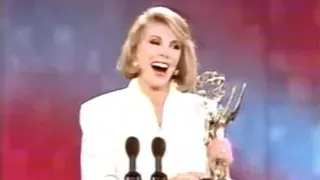September 19, 2023
TIFF Journal 2023: 'Strange Way of Life,' 'Riddle of Fire,' 'Without Air' and Final Thoughts
C.J. Prince READ TIME: 5 MIN.
The 48th edition of TIFF has come and gone, and while the ongoing Hollywood strikes led to a more subdued event than usual, from a festival goers' perspective not much changed: lots of films to see, just with less talent than one might normally expect. For myself, this year's edition had more consistency than I usually get with regards to the programming. Most of what I saw turned out to be pretty decent, with a consistent amount of decent-to-good works and only a few standouts. I would have liked to see more films that really impressed me, but it's never a guarantee, and compared to prior editions I would happily take a lineup like this over trudging through lots of bad films in the hopes of finding something great.
In the final days of the festival, I unfortunately did not catch People's Choice Award winner "American Fiction," although its November release date means I shouldn't have to wait too long. Instead, I reworked my schedule when TIFF announced added screenings for Pedro Almodovar's "Strange Way of Life," the out filmmaker's gay western that premiered earlier this year at Cannes. The short film only had one screening during the festival tied to a discussion with Almodovar, meaning it was one of the hottest tickets in town. It makes sense to show the film with some sort of added value though, due to its half-hour runtime and the fact that it's somewhat of a letdown.
Pedro Pascal and Ethan Hawke star as Silva and Jake, two old friends and former outlaws who reunite after 25 years when Silva rides into Jake's town. Jake is the town sheriff, and after a steamy reunion between them things go sour when it's revealed Silva's son is a wanted man. Jake has to find and arrest him, which Silva doesn't want, and their feelings for each other clash against the circumstances bringing them together. It all sounds like the fun melodrama Almodovar knows how to pull off but the execution is lacking. Hawke and Pascal's stilted chemistry, clunky dialogue, and a rushed plot make "Strange Way of Life" a bit of a mess, even if it looks great. Once Almodovar settles into an idea around masculinity in the wild west, and the ways in which lust and violence can explode at any moment in that oppressive environment, the film ends.
In the Discovery programme, which dedicates itself to works by new filmmakers, I took a chance on Katalin Moldovai's directorial debut "Without Air." Set at a high school in Hungary, it deals with the fallout over beloved teacher Ana (Ágnes Krasznahorkai) when she recommends Agnieszka Holland's 1995 film "Total Eclipse" to her students. The film, which shows a gay love affair, angers the father of one of Ana's students, who complains to the authorities that she's promoting a homosexual agenda to her students. The news comes as a shock to Ana since she's recommended the film in prior years without issue, so she stubbornly fights against the complaint as she's done nothing wrong.
It shouldn't come as a surprise that Ana's choice to stick to what's right does her no favors, as she gets vilified by jealous coworkers, ignorant townspeople, and the bureaucracy of her school and the government. Moldovai's debut, like most first-time features, wants to impress. Precise framing and blocking, along with some elaborate long takes, establish that she has a clear idea of how to tell this story. The problem is that, script-wise, Moldovai and co-writer Zita Palóczi go through the motions of the big, corrupt institution grinding its principled protagonist into dust. As a result, the camerawork comes across as too fussy compared to the material, and at a certain point it calls too much attention to itself. There's enough promise in "Without Air" and its attention to detail that makes me think Moldovai isn't worth writing off. I just hope she finds stronger material to work with in the future, or at least a better blend of form and content.
Luckily, I ended my festival on a (mostly) high note with "Riddle of Fire," another directorial debut. My screening, the day after its premiere in the festival's Midnight Madness programme, came with a surprise the premiere audience didn't get: a 35mm print of the film, newly struck, and an ideal way to watch this eccentric throwback to kids' adventure movies from the '70s and '80s. Set in the fictional town of Ribbon, Wyoming, director Weston Razooli follows kids Hazel (Charlie Stover), Jodie (Skyler Peters) and Alice (Phoebe Ferro) as they ride dirt bikes to a warehouse and steal a new video game console they hope to try out before the school year starts. A new parental control on the TV at Hazel and Jodie's house prevents them from gaming, and their mom says she'll let them play as long as they can bring her a blueberry pie.
That kicks off the hero's journey the three young leads must take, as the simple task to buy a pie at a nearby bakery becomes more complicated and dangerous once the kids cross paths with a dangerous gang leader (Lio Tipton). Razooli's debut is overstuffed, to the point where the almost two-hour runtime threatens to drag everything down. But "Riddle of Fire" has more than enough charm and distinctiveness to make its pacing issues easy to forgive. Filming on 16mm, Razooli leans into the rough edges of his limited resources to create a unique mix of genres with an element of danger, and its core trio's wobbly performances only add to the film's charms.
It's also nice to see a filmmaker who has an innate understanding of his reference points, and use that skill to build out something new rather than blindly copy from the past. The unpredictable logic of the narrative developments echo the mishmash nature of a child's imagination, and Razooli's willingness to take the story to strange and dark places speaks to the appeal of those classic kids' movies that also happen to have something a little horrific sprinkled in. Like the films of Panos Cosmatos ("Beyond the Black Rainbow" and "Mandy"), "Riddle of Fire" takes a specific time and genre of filmmaking from the past, brings it to the present, and establishes its own off-kilter version with entertaining results.







